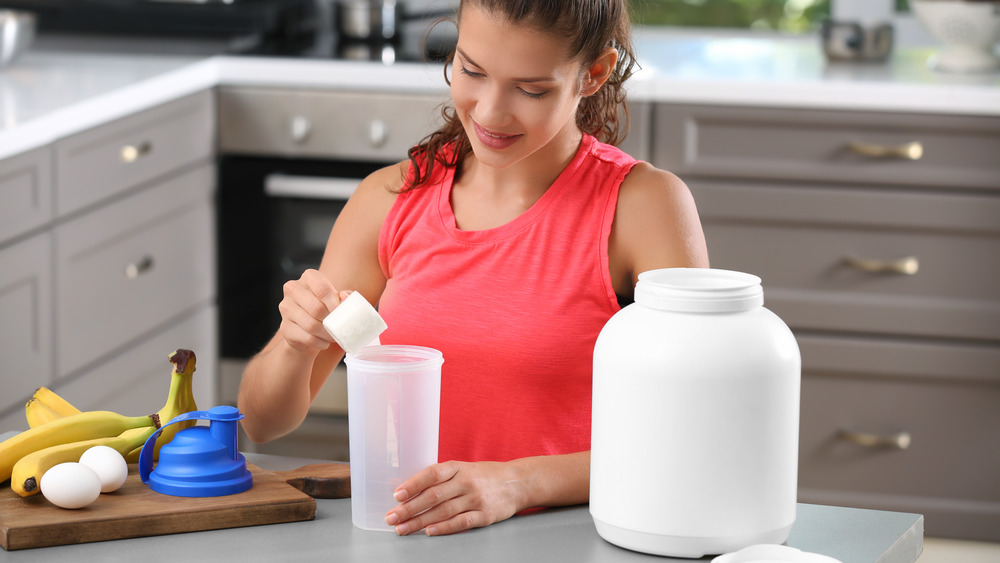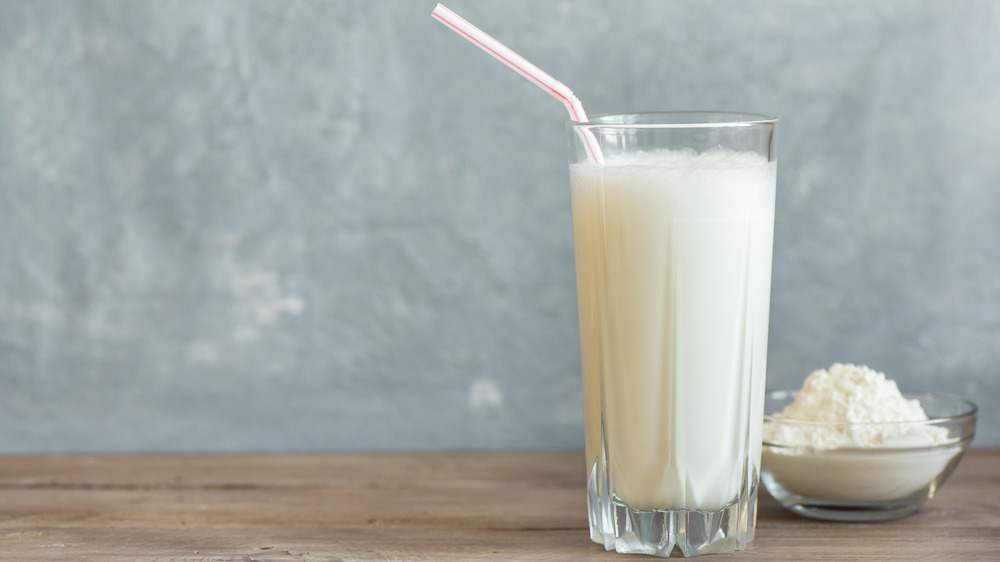This Is What's Really In Whey Powder
If you're trying to add more protein to your diet, it might be tempting to order the biggest tub of whey protein that you can find, but be careful: There might be more ingredients in your whey powder than you might expect. Here's what you need to know about ingredients listed on your whey protein container — but don't forget, because protein powders are considered supplements, they aren't regulated by the Food and Drug Administration and may contain more than is reported on the label (via the Clean Label Project).
Whey itself is the protein found in milk products: it's the byproduct of cheese and casein (via Livestrong). Whey is high in protein, which makes it a great simple source for those hoping to up their protein intake without adding a full meal, but it also contains lactose, making it less than ideal for those who are lactose intolerant.
It contains all of the essential amino acids the body needs in order to function optimally, and in addition to providing a serving of protein, it may even help athletes recover from their workouts faster. But if you are lactose intolerant or allergic to dairy, a plant-based protein may be a safer option for you.
What else goes into whey powder?
While it is possible to purchase pure whey powder, if you're buying it from a store or as an athlete-specific supplement, it likely contains other ingredients to improve flavor and texture. While some are flavored with natural ingredients like vanilla extract and contain few additives, some have dozens of ingredients listed with the whey (via Harvard Health Publishing).
Whey protein comes in three forms: whey protein concentrate, which contains low levels of fat and carbohydrates as well as protein; whey protein isolate, which removes the lactose and fat so it's almost entirely protein-based; and the less-common whey protein hydrolysate, which requires less digestion than the other two forms of whey protein (via Medical News Today).
When checking ingredients, make sure you're checking sugar content: Some whey proteins may contain artificial sweeteners like sorbitol or stevia, while others contain as much as 23 grams per scoop of added sugars. That added sugar can double the calories in a single scoop — plus, the American Heart Association recommends a limit of 24 grams of added sugar per day for women and 36 grams for men.


